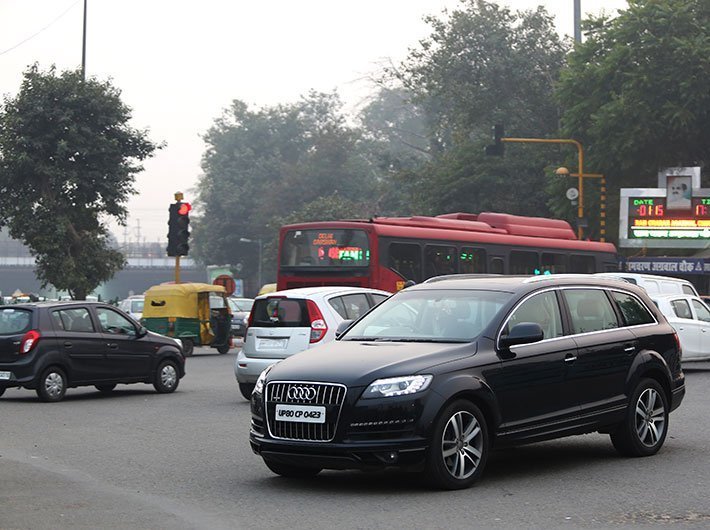Studies show that pollution went up - and not down - when the scheme was implemented
The odd-even formula being bandied about by the Aam Aadmi Party government in Delhi may not be answer to the smog that is stifling life in the national capital.
In clearly a knee-jerk reaction, the authorities have now brought back the odd-even formula under which cars with licence plates ending in an odd number and even-number ply on alternate days.
The National Green Tribunal on Friday highlighted the data from the central and Delhi pollution control boards which showed that both PM 10 and PM 2.5 levels were higher after odd-even was implemented in the city last year.
Read: Delhi needs policies to complement odd-even
The implementation of the odd-even formula had led to a significant reduction in traffic on Delhi’s normally jam-packed roads, but it did not improve the air quality. The scheme was twice implemented in 2016. Once from January 1-15 and the second time from April 15-30.
Anumita Roychowdhury, CSE’s executive director-research and advocacy, says: “This is not a time for temporary measures and actions.”
A paper by The Energy and Resources Institute pointed out that during phase-II of the ddd-even scheme, “the averaged PM2.5 concentrations at 5 locations in Delhi were 1.4-4.3 times higher than prescribed 24-hourly standard. NO2 concentrations were 0.6–1.36 times the prescribed standard, while PM10 levels were 1.8–4.0 times above the prescribed standard”.
“It is to be noted that the average concentrations of the pollutants were lower in summers (Phase-II) than in winters (Phase-I), during the odd-even scheme. The 24-hourly PM2.5, PM10, and NOx concentrations during the odd-even period were higher than in the non odd-even periods ( just before and after the odd-even scheme),” said the paper.
During odd-even phase-I (January, 2016), there was an increase of 25%, 22%, and 27% in PM2.5, PM10, and NOx concentrations, respectively. In odd-even phase-II, the increase was 39%, 26%, and 25%, respectively, it added.
Another study too showed the same alarming result.
“Air pollution levels in Delhi rose 23% during the second phase of the odd-even registration rule, from April 15 to April 29, over the previous 14 days (April 1 to April 14), based on an analysis of PM (particulate matter) 2.5 data, generated by IndiaSpend’s air-quality monitoring devices,” said IndiaSpend.
The inherent problem with the odd-even scheme is that there are just too many exemptions that have been granted, with the biggest chunk being the two-wheelers.
The total number of registered vehicles in Delhi at 1,05,67,712 till May 25, 2017. There are 31,72,842 registered cars in the city. The biggest chunk of the registered vehicles — 66,48,730 — in the city is, however, motorcycles and scooters that are known as major air polluters due to poor emission standards, reported The Tribune.
The Delhi government should go back to the drawing board before hastily attempting to implement the odd-even scheme and that too, days after thick smog had actually enveloped Delhi and its neighbourhood.
